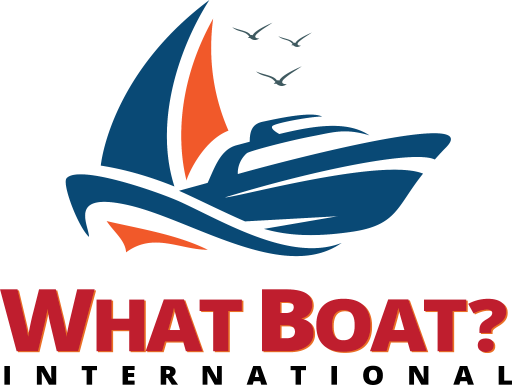
Many clubs found 2022 financially challenging as a result of the cost-of-living crisis and increases in energy costs. This, together with the impact of an overly complex tax system and extensive red tape made, and continues to make, life for the volunteer club treasurer more difficult.
Whilst there have been some successes in the delivery of community sport, such as the recovery of children’s activity to pre-pandemic levels, there remains much more to be done in encouraging participation in sport and physical activity (Sport England – Active Lives Children and Young People Survey dated 08 December 2022). Both funding and the tax system will play an important role if this is to be achieved.
Support available
As an RYA affiliate, clubs can access a 30-minute consultation underwritten by the RYA, with an external tax consultant. Richard Baldwin MBE; FCA; CTA, Corporation Tax Specialist, can advise clubs on many CT related queries and Russell Moore, Sport VAT Consultant can offer support on any VAT related matter.
You can find out more about the subjects covered by Richard Baldwin and Russell Moore, and how to contact them by visiting the Expert tax assistance for RYA affiliated clubs page.
The financial challenges
The extent of the financial challenges facing sports clubs nationally was revealed in the Cost-of-living Survey, recently published by the Sport and Recreational Alliance. The findings of which showed:
a. Clubs are dipping into reserves to meet their running costs,
b. Club energy bills are expected to double over the next 12 months,
c. The worsening financial climate caused the total amount of activity offered by clubs to fall by 16% last year compared to 2019.
These results reflect the findings from the RYA’s Facilities and Utilities Survey which indicated a worrying trend that grassroots sailing clubs were suffering due to a substantial rise in fuel and energy costs. 64% of respondents have seen their club or centre’s cost of energy increase over the past 12-months, and 75% agreed or strongly agreed that rising energy costs would impact their club or centre’s finances.
Has the tax system helped sailing clubs in 2022?
The answer on balance is ‘no’ since the bad news has outweighed the good and therefore increasing the burden of tax on clubs.
However, good news for clubs included:
i. The current 50% reduction in business rates has been extended and increased to 75% for 2023/24.
ii. Government introduced an Energy Bill Relief Scheme for non-domestic customers to provide support this winter and is considering its extension from 1st April 2023.
iii. The proposed introduction of Making Tax Digital for the self employed which was due to come in on 1st April 2024 has now been postponed until at least April 2026. This would have adversely impacted a significant number of individuals supplying services to clubs e.g. coaches and trainers.
Unfortunately, there was bad news for clubs, including:
iv. the introduction of the Trust Registration Service which has affected many unincorporated sailing clubs with formal trust deeds evidencing their property ownership and has the potential to affect many more (Counsel’s Opinion is currently being sought on this).
iv. Corporation tax (CT) was due on Local Authority (LA) Business Support Grants which has made many clubs more aware of their current and future CT obligations. Failure to file CT returns and pay the CT due can give rise to payment of back tax, interest (at increasing rates) and penalties.
v. The main CT rate will increase after 1st April to 25%. Whilst most sailing clubs with taxable profits should continue to pay tax at the small companies rate of 19% where they have windfall taxable profits e.g. from the sale of land for development the higher rate may be chargeable.
vi. The freezing of tax thresholds such as personal allowances, the impact of higher and additional income tax rates and inheritance tax exemptions will adversely impact individual members’ finances with potential reductions in memberships.
vii. HMRC’s has confirmed that VAT zero-rating of newly built clubhouses will not be available for Community Amateur Sports Clubs (CASC’s) and zero-rating will not generally be accepted by HMRC for new buildings constructed by charitable sports clubs.
Practical tax issues for clubs in 2022
Some of the issues that clubs have requested assistance with in 2022 have included:
a. Registration for CT with HMRC and advice on tax liabilities e.g. these can arise if the club’s only source of taxable income is interest on bank deposits.
b. Advice on CT arising on Local Authority Covid Business Support Grants.
c. The tax implications associated with incorporation.
d. Registration with HMRC either as a CASC or charity to take advantage of the tax benefits which can generate cash for a club.
Looking forward to possible tax issues in 2023
Unfortunately, the recommendation on tax in the House of Lords Committee’s Report ‘National Plan for Sport and Recreation’ is unlikely to be acted upon by Government. This report was published over a year ago and, based on evidence submitted by Richard Baldwin, Recommendation 7 was for HM Treasury to review the tax environment for the sector, including sports clubs, to create a more favourable tax regime that encourages self-sufficiency and reduces dependency on public funding.
Sailing clubs are thus left with making the best of their existing tax and financial position (the latter is much worse than when the Committee reported). Challenges will include, dealing with a poor HMRC service and support for sports clubs (the general position for taxpayers has been commented on continually in 2022 by professional bodies such as the Institute of Chartered Accountants in England and Wales and the Chartered Institute of Taxation).
At a practical / technical level, the differentiation between the employed and self employed for tax purposes will continue to trouble volunteer club treasurers, as will the need to file CT returns and pay tax on time. HMRC PAYE Control visits will continue to generate extra funds for the Exchequer at the cost of clubs which do not operate the procedures correctly.
Value added tax will continue to be a burden for unregistered sailing clubs where no VAT on purchases and supplies will be recoverable. For those clubs which are VAT registered and thus partially exempt, there will be limited recovery of VAT on costs, particularly on facility improvement costs, although with advance planning based on professional advice VAT recovery can be improved.
Changes in legislation for tax and in financial areas will also increase the red tape which club treasurers and secretaries will face. Some of the former will be announced in the Spring Budget due on 15 March 2023 when few, if any, tax benefits for community sport are expected despite sport’s constant lobbying of successive Governments over the last 20 years. Tax law is in a constant state of flux following continuous consultations by HM Treasury. Changes in the broader financial area will include the introduction of a new Charily Commission Annual Return for charitable clubs in England and Wales increasing the amount of information to be provided and the introduction of additional information in the financial accounts filed by incorporated clubs at Companies House.
Tax help for clubs in 2023
Registering as a charity or CASC
It is still the case that many sports club treasurers are not aware that the tax system can help bridge the widening financial gap at their clubs by registering with HMRC as a CASC or charity. Registering as a charity, usually a Charitable Incorporated Organisation (CIO), is more involved requiring registration with the appropriate Charity Commission, following their guidelines and reporting annually to it but perhaps has the benefit of being a better known “brand”.
CASC registration has provided significant cash benefits to the over 7,500 clubs which have registered (including many sailing clubs). These benefits comprise of CT exemptions, tax reliefs for giving and 80% mandatory business rates relief. Overall a CASC’s business rates bill will be reduced by 95% for 2023/24. Similar cash benefits are available for charitable sports clubs.
The tax reliefs for giving include gift aid tax rebates of 25% of any qualifying donations by individuals (and rebates to individual donors if they are higher or additional rate income tax payers). Cash refunds can also be claimed under the Gift Aid Small Donations Scheme of 25% of small cash or contactless donations of £30 or less up to a maximum annual refund of £2,000. Lifetime gifts and bequests on death to a CASC or charity are exempt from inheritance tax thus saving 40% IHT otherwise payable on death.
Registration with HMRC for tax favoured status as a CASC or charity is worth considering in 2023 for those sailing clubs which are not already registered. Those that are registered should take full advantage of the tax reliefs for giving. Once registered individual members, friends and supporters should consider taking advantage of the giving reliefs to support their clubs and get a valuable contribution from the Exchequer. Registration and promoting giving by those connected with the club who can afford it would be a good New Year’s resolution for club treasurers!
Treasurers are advised to carry out a review of tax at their club, particularly if they are new to the role.

